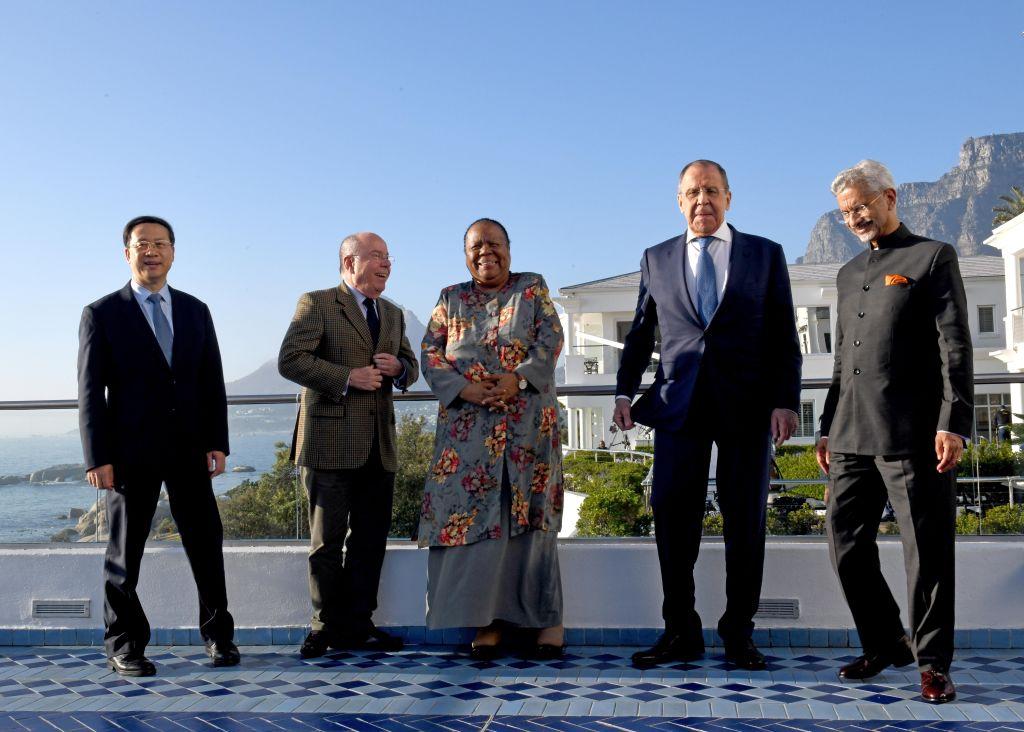Governing a post-Western world
Posted By Mark Leonard on July 6, 2023 @ 11:30

When NATO leaders descend on Vilnius for next week’s annual summit, they will demonstrate that the organisation, newly united behind support for Ukraine, is far from ‘brain dead [1]’, as French President Emmanuel Macron infamously described it in 2019. But beneath NATO’s new vitality lies a problem: the West’s failure to convince the rest of the world that it also has a stake in Ukraine’s defence is emblematic of a broader shift.
In a world of rapidly evolving power dynamics, a silent revolution is reshaping multilateralism and increasingly leaving the West and its institutions behind. To paraphrase [2] India’s foreign minister, the West’s problems are no longer the world’s problems.
This development may come as a surprise to those who, in the immediate aftermath of the Cold War, had bet on the transformative power of the post-1945 global governance institutions. The West’s instinct was to emphasise the universalist nature of these institutions and expand their scope. The hope was that bringing even recalcitrant countries into the tent would make them less likely to want to burn it down. With enough time, the argument went, they would become what then–US deputy secretary of state Robert Zoellick called [3] ‘responsible stakeholders’.
But that forecast failed, not least because China, the main target of the responsible-stakeholder approach, was never forced to choose between integration and revisionism. After being given a seat at the table, it pursued a three-pronged strategy of extracting as much value as it could from global institutions while also preserving its own sovereignty and building parallel institutions. Among these are the BRICS grouping (Brazil, Russia, India, China and South Africa), the New Development Bank and the Asian Infrastructure Investment Bank, which are meant to be alternatives to the G7, the International Monetary Fund and the World Bank, respectively.
Not until the 2008 global financial crisis did the West wake up to this reality. Since then, it has mirrored China’s own practices, attempting to advance its interests and values with a similar three-pronged strategy. The United States, for example, has re-engaged with the United Nations to push back on Chinese influence while also building its own parallel institutions—from the EU–US Trade and Technology Council to the Quadrilateral Security Dialogue (with Australia, India and Japan) and AUKUS (with Australia and the United Kingdom).
Western governments are also taking pains to create more connective tissue between Euro-Atlantic and Asia–Pacific institutions, such as by inviting Asian partners to NATO summits. But most striking is the new focus on exclusive climate clubs, carbon border taxes and friend-shoring. By pursuing these ideas, the West has further undermined the post-1945 institutions, making them—and thus itself—even less credible in the eyes of the rest of the world.
The problem with this zero-sum approach, of course, is that it could make solving pressing global challenges even more difficult. When it comes to climate change, the war in Ukraine and the threat of future pandemics, the legacy global-governance institutions have proven to be incapable of delivering cooperative solutions, partly because of their loss of credibility.
Many of us would wish that the 1990s model of global governance had worked, but it’s hard to deny that the old ‘responsible stakeholder’ ethic now needs to give way to a new ethic that is better suited to a multipolar world.
Unfortunately, Westerners will need to reduce their ambitions for universalist institutions, treating them less as sources of solutions and more as sites for sharing information and facilitating conflict management and resolution. The UN can’t avert competition between major powers, but it can help establish guardrails. The world desperately needs a greater effort to make war—and not just over Taiwan—less likely, and it still needs diplomacy to end conflicts like the one in Ukraine. The goal should be what US National Security Adviser Jake Sullivan calls [4] competition without catastrophe.
Global governance needs to be reconceived for an age of non-cooperation. On climate change and Covid-19, multilateralism has achieved only modest successes [5], whereas the biggest advances have been driven by rivalry and competition. It would be better to have cooperation, but where it is not possible, perhaps the same kind of incentive structures could work in other areas.
We must also recognise that much of the action is now happening outside Western-led institutions. In the domain of peacemaking and security, the West has already started to come to terms with the realities of a more fragmented world. In Syria, Mozambique and the Democratic Republic of the Congo, and in the rivalry between Saudi Arabia and Iran, non-Western powers are playing a greater role as intermediaries. The West has generally yielded to this new logic, engaging where necessary, but usually on terms guided by local realities instead of its own wishful thinking.
Rather than dwelling on whom to invite into Western-led processes, Western countries should be looking outward. Which of the new non-Western institutions and initiatives does it make sense to engage with, and in what domains (regulatory, standard-setting, and so forth) can Western powers help to achieve favourable outcomes?
Coming to terms with the new multipolar world doesn’t mean cutting ourselves off from everyone else. Even as the West builds new institutions with like-minded countries, it must continue to engage constructively with non-Western players. Cooperation on global issues can be compatible with competition. By being clear-eyed about its interests and capabilities, the West can leverage its still-considerable heft to much greater effect. That will bring better results than a retreat into solipsism ever could.
Article printed from The Strategist: https://aspistrategist.ru
URL to article: /governing-a-post-western-world/
URLs in this post:
[1] brain dead: https://www.economist.com/europe/2019/11/07/emmanuel-macron-warns-europe-nato-is-becoming-brain-dead
[2] paraphrase: https://www.outlookindia.com/national/explained-what-jaishankar-said-about-europe-why-germany-chancellor-praises-him-news-263632
[3] called: https://www.ncuscr.org/fact/robert-zoellicks-responsible-stakeholder-speech/
[4] calls: https://www.foreignaffairs.com/articles/china/competition-with-china-without-catastrophe
[5] modest successes: https://www.scmp.com/comment/opinion/article/3202306/15-degrees-we-need-prepare-temperature-overshoot-and-worse-climate-change?module=inline&pgtype=article
Click here to print.